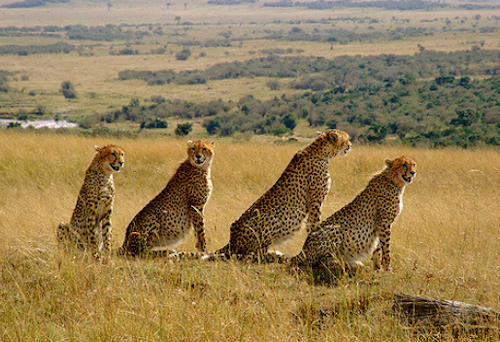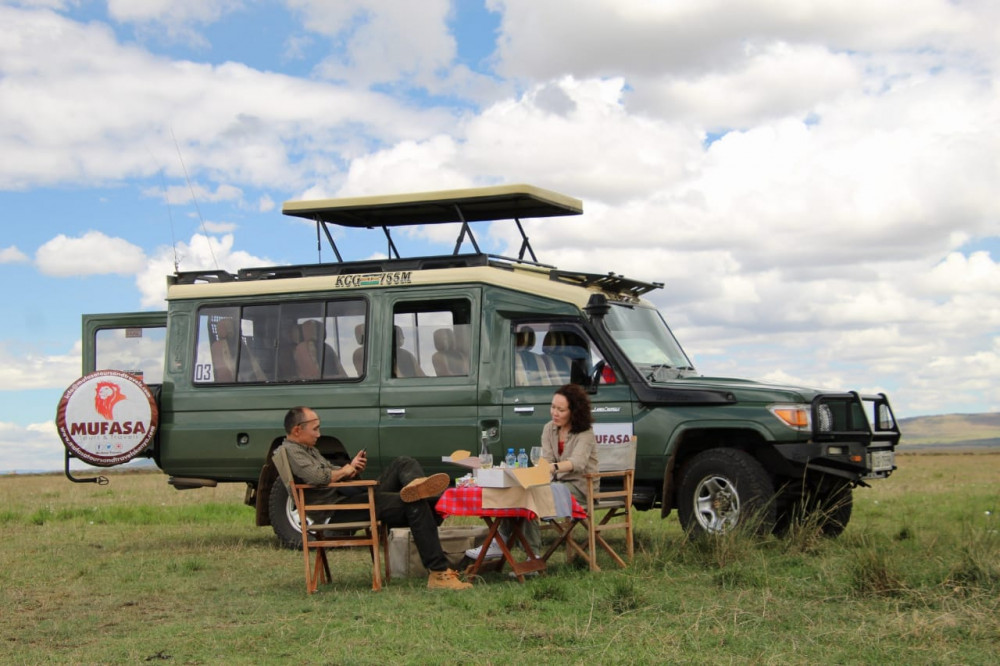Top Suggestions To Deciding On Airport Transfer To Mombasa
Top Suggestions To Deciding On Airport Transfer To Mombasa
Blog Article
What Are The Precautions To Stay Healthy I Should Take When Travelling To Mombasa, Kenya For A Holiday?
It is crucial to take health precautions when visiting Mombasa in Kenya. This will ensure that you are enjoying your trip and be secure. Here are some important health considerations.
1. Vaccinations
Routine Vaccinations: Ensure that you are up-to-date on routine vaccines such as measles-mumps-rubella (MMR), diphtheria-tetanus-pertussis, varicella (chickenpox), polio, and your yearly flu shot.
Hepatitis A: Recommended for everyone traveling because of the dangers of contaminated water and food.
Hepatitis B travelers who may be exposed to blood or bodily fluids through sexual contacts, medical treatments or the use of drugs must be informed.
Typhoid vaccination is recommended for everyone who travels, particularly those who are visiting smaller or rural areas, staying with family or dining in uninformed places.
Yellow Fever. People from countries that are at danger of introducing yellow fever may be required to show an official certificate of vaccination. Make sure you are aware of the current guidelines.
Rabies: Think about it for people who go out in the wild and are bitten by animals. This is for people who go going camping, hiking and caving, among others.
2. Malaria Prevention
Mombasa has a very high malarial prevalence. Consult your healthcare provider for the most effective antimalarial medicine for you.
Apply insect repellent with DEET. Also, dress in long sleeves and trousers. This is particularly important in the evening. If you don't have a well-ventilated, air-conditioned hotel room, you can sleep with the protection of a net.
3. Food and Water Safety
Do not drink tap water or ice cubes. Avoid ice cubes, tap water and unsealed drinks.
Be Safe: Eat only well-cooked foods. Avoid unwashed or raw fruits and vegetables as well as seafood. Avoid street food and go to reputable eateries.
4. Diarrrhea of the Traveler
Hand sanitizers and soaps are good alternatives to hand washing. Avoid drinking or eating foods from questionable sources.
Meds: Carry medicines such as Lloperamide (Imodium) and oral Rehydration salts. To treat severe instances, consult your physician for antibiotics.
5. Sun Protection
Apply a sunscreen with at least a 30 SPF. Make sure to apply your sunscreen regularly and particularly when you've been swimming or sweating.
Protective Clothing Wear sunglasses, hats, and light, long-sleeved garments to limit sun exposure.
6. Hydration and heat
Keep hydrated: Drink plenty of fluids in order to prevent dehydration, especially water. Avoid alcohol and caffeine as they can dehydrate you.
Avoid overexertion. Take regular breaks, especially during the hottest time of the afternoon. Seek shade and cool environments to avoid heat exhaustion and heat stroke.
7. Water Activities: Safety and Security
Swimming in Areas Delineated: Take note of the local advice and the swimming conditions as well as any potential dangers such a strong current.
Sea Life Awareness: Be aware and stay clear of dangerous marine life such as jellyfish and sea Urchins. Wear water shoes while walking in shallow waters.
8. Care and Insurance. Care and Insurance
Travel Insurance: Ensure you have an insurance plan for your trip which covers medical emergencies including evacuation.
Local Medical Facilities: Familiarize yourself with the exact location of reputable medical facilities located in Mombasa. Hotels with major chains will usually give you information about doctors and hospitals nearby.
It is also recommended to bring a copy of your prescription along with an adequate supply of any prescribed medicines you take.
9. Emergency Contacts
You can get the contact information of your country’s embassy in Kenya by contacting them.
Local Emergency Numbers. Be aware of the local emergency phone numbers for the police (999) firefighters (999) and ambulances (999).
Take these precautions to minimize your risk and enjoy your time in Mombasa. See the recommended island snorkeling in mombasa for site advice including travel tours in kenya, mombasa beach kenya, tour mombasa, kenya safari tours, tour company in kenya, travel & tours company, safari company kenya, africa and safari, beach in mombasa, travel tour companies and more.
What Is The Cultural Sensitivity I Should Be Aware Of While Traveling To Mombasa Kenya On A Holiday?
Being sensitive to the culture of Mombasa in Kenya is crucial to ensure you have a a positive experience and respect the locals. Here are a few important considerations:
1. Dress according to local code of dress
Mombasa's Muslim population is large. In public places or places of worship, as well as in the neighborhoods, it is essential to dress in a modest manner. This means covering shoulders, chest, and even the knees.
Beachwear - Swimwear is a good option to be worn while at the beach however, you must wear a hoodie when you go to restaurants or shopping in the vicinity.
2. Religious Sensitivity
Visiting Mosques: If you would like to visit the mosque, you must ask permission first and dress conservatively. Women should cover their heads with a covering and everyone should remove their shoes before entering the mosque.
Prayer Time - Keep track of five daily prayers times. Make sure you are respectful at these times, particularly when there is a mosque nearby.
3. Photography Etiquette
Permission: Before taking photos of anyone, make sure you get their consent. This is especially important in rural areas or settings that have traditional values. Certain people are uncomfortable, or might think that photos are intrusive.
Restricted areas: Do not photograph in areas that are sensitive like military installations, government buildings or other cultural sites in which photography is not permitted.
4. Social Interactions
Salutations: It's important to greet your guests in a polite manner. Swahili's most common greeting is "Jambo" meaning"Hello. Handshakes are normal, however for Muslim women, it is respectful to wait until they extend their hand first or simply greet them verbally.
Personal Space: Pay attention to the importance of respecting the privacy of your own space.
5. Cultural Norms & Taboos
Public Exhibits of Love are frowned on.
Left Hand Usage - Traditionally the left hand was considered unclean. Make use of your left hand when eating, wishing people well or exchanging money and goods.
Feet: Showing the soles of your feet, or showing your feet to others is considered rude.
6. Language and Communication
Basic Swahili A few fundamental phrases in Swahili will help in building respect and establishing rapport with the locals. The most popular Swahili phrases include "Asante" that means "thank you" as well as "Habari" that means "How are you?" ).
Politeness: Be patient and politeness in your communication. Kenyans are tolerant of respectful and courteous interactions.
7. Be respectful of local Customs
Respecting traditions Respecting traditional practices: Be respectful of ceremonies and customs. It is important to follow the host's guidelines if invited to an event in the local area.
Bargaining is a common practice in the local market and at shops. However, it must be conducted with respect and humour. It is a cultural tradition rather than an aggressive one.
8. Alcohol and Smoking
Consumption: Alcohol can be purchased however it should be consumed in a discreet manner especially in predominantly Muslim areas. Beware of public drinking.
Smoking is generally not permitted in public spaces. Smoking zones are typically marked.
9. Environmental Respect
Littering. Avoid littering. Make sure you dispose of your waste correctly. Be respectful of wildlife, natural habitats, and other animals.
Support conservation efforts. Respect wildlife and habitats in your area. Beware of buying products made that contain endangered species.
10. Supporting Local Communities
Local Businesses: Help local artisans, businesses and markets that contribute positively to the local economy.
Responsible Tourism: Choose sustainable, community-based tourism alternatives that benefit the local population.
Take a look at these tips for cultural sensitivity to make your trip more enjoyable in Mombasa and gain an understanding and appreciation of the local culture. Take a look at the best kisite mpunguti marine for more recommendations including tour and travels, africa safaris and tours, kenya africa travel, safari excursions, tours & safaris, kenya tourism, kenya safari holiday packages, mombasa safari packages, kenya safari packages, travel & tours company and more.
What Environmental Responsibilities Should I Be Aware Of During My Holiday In Mombasa Kenya?
To protect the natural beauty and variety of Mombasa in Kenya It is essential to be environmentally conscious. Here are a few important environmental responsibilities to be aware of:
1. Sustainable Accommodation
Eco-Friendly Hostels: Choose hotels that adhere to sustainable practices. Check for certifications such as Eco-Tourism Kenya or other eco-labels.
Resource Conservation: Take part in hotel initiatives to save water and energy. Reuse linens and towels, turn off lighting and air conditioning when being used.
2. Responsible Conservation of Wildlife
Be respectful of wildlife. Maintain a safe distance away from animals to ensure that you do not cause disturbance to them. Follow the instructions given by your tour guide.
Beware of feeding wild animals. Feeding wildlife could alter their eating habits and behaviors.
Leave No Trace. Don't litter in parks or wildlife reserves. Bring all of your garbage with you and dispose of it correctly.
3. Plastic Reduction
Reduce your use of plastics by avoiding single-use plastics. Carry a water bottle or bag that is reusable, as well as the utensils.
Participate in local initiatives: Take part in beach cleanups, and aid groups that help reduce the impact of plastics on the environment.
4. Water Conservation
Make use of water wisely: Mombasa experiences water scarcity issues. Switch off the water taps and take a shorter shower.
Eco-friendly Products: Use toiletries that are biodegradable and environmentally friendly to minimize the impact on water quality.
5. Energy Conservation
Reduce energy usage: Unplug electronic equipment when it is not being used and limit the use of air conditioners.
Encourage renewable Energy by selecting accommodations and tour operators that make use of renewable energy sources.
6. Sustainable Transportation
Public Transport: Cut down on your carbon footprint when you use public transportation such as buses, matatus and other forms of public transportation.
Consider walking or renting bicycles to travel short distances. Some areas offer eco-friendly tuk-tuks.
7. Helping to support local economies
Locally-owned businesses: To help the local community, buy souvenirs, food items, and crafts from local vendors.
Fair Trade: Select fair trade certified products to ensure that local farmers are paid fairly.
8. Environmental Education
Learn and share. Learn more about the local environmental issues and conservation efforts. You can share with others what you discover to increase awareness.
Respect local cultures: Know and accept local customs and traditions related to environmental conservation.
9. Marine Conservation
To ensure you're doing snorkeling and diving responsibly be sure to avoid touching coral reefs, or even stepping directly on the reefs. Use reef-safe, non-toxic sunscreen to help protect marine wildlife.
Waste Disposal: Never dispose of trash in the ocean. Join or help in marine conservation programs.
10. Ethical Souvenirs
Beware of products that contain wildlife Don't buy items made of endangered species like ivory or tortoiseshell.
Sustainable Materials Choose souvenirs from recycled or sustainable materials.
11. Take part in Conservation Activities
Think about volunteering in tourism for the community or conservation initiatives.
Support local NGOs. Give funds to conservation organizations that are working to preserve and protect the environment.
12. Responsible Travel Policies
Group Size: Traveling in small groups will minimize the impact on the environment.
Eco-Tours. Choose tour operators that are committed to sustainable practices, and follow environmentally friendly practices.
By keeping these environmental responsibilities in mind, you can help preserve Mombasa's natural resources. You can also ensure that the beauty and diversity of the region are maintained for future generations. Take a look at the top kenya mombasa train for blog examples including kenya travel, tour firms in kenya, tour and travel company, kenya safari and beach packages, tour firms in kenya, kenya travel, tour agents in kenya, africa tours and safaris, kenya safari and beach packages, african safari tours kenya and more.